Once again, credit cards are not free money.
If you’ve ever binge-watched Schitt’s Creek, then honestly, same. It’s a sitcom about a wealthy family that suddenly goes broke and finds itself forced to live in a conveniently named small town called — you guessed it — Schitt’s Creek. So what’s not to love?
The main characters include Moira Rose (the mother), Johnny Rose (the father), Alexis Rose (the daughter), and David Rose (the son).
I’ve watched all six glorious seasons three times and have zero regrets. But Moira’s matchless musings aside, the show actually inserts some very real lessons about money that viewers can learn from.
1. Make sure you file taxes on your income, whether you’re employed by a company or you run a business.

In the very first episode, the Internal Revenue Service visited the Rose family home to seize their assets. We learned that the Roses own a lucrative business, but their business manager failed to file taxes on their behalf (oof).
Whether you have someone managing your income or you take a more hands-on approach to your finances, always make sure you’re filing your taxes by the yearly deadline to avoid penalties!
2. Money can take you on an emotional roller coaster. And when disaster strikes, things can feel extra overwhelming.
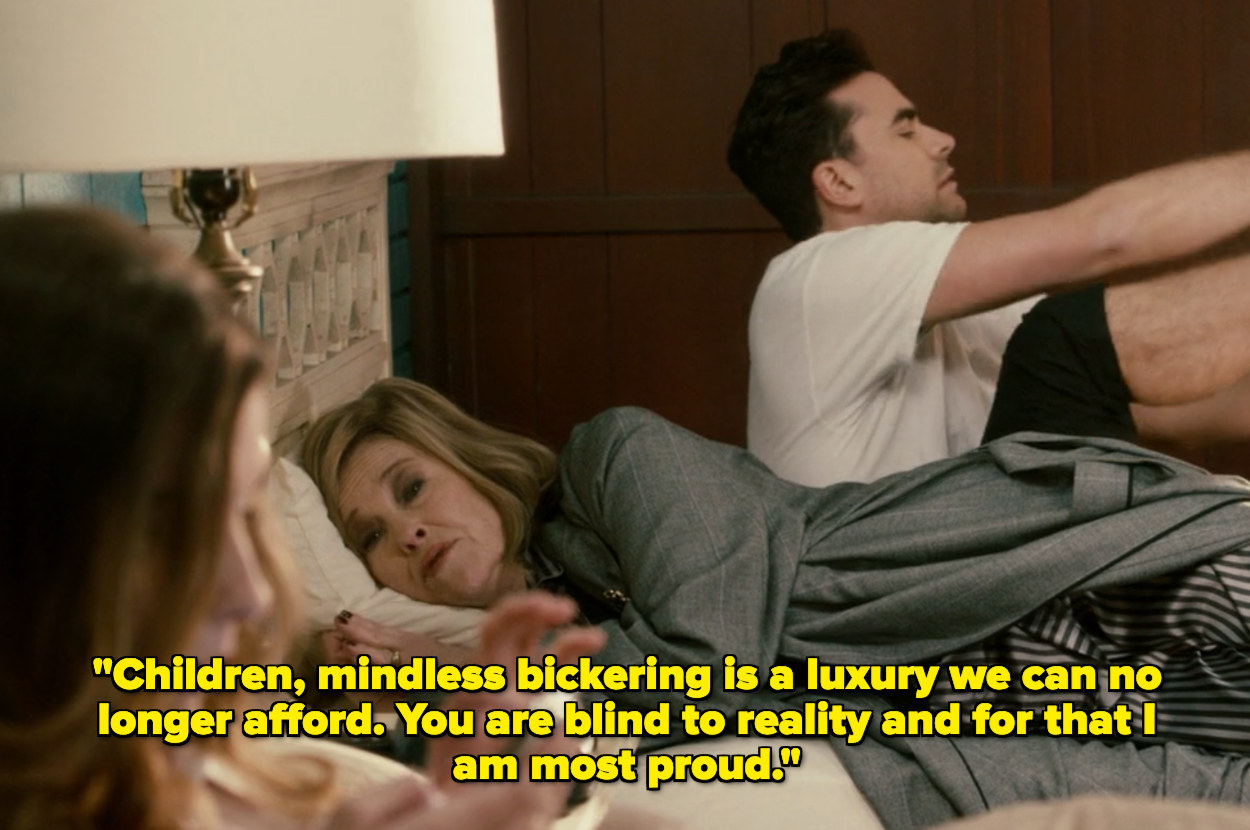
The Rose family moved into a motel that’s — how should I say this — not quite up to the standards of the luxury they’re used to. They lost basically everything and felt shocked, sad, and angry.
Money is more psychological than you might realize it is. Think about it: The way we spend, save, and invest is driven by our psychology! So it’s understandable when you make a big win and feel like you’re on top of the world — or, conversely, when you lose money and your mood deflates. When your finances feel overwhelming, lean on your loved ones for emotional support and encouragement.
BTW, if you think your finances are starting to affect you emotionally, here are some tips that might help soothe some of that financial anxiety.
3. Seek professional advice when needed. Professionals can analyze your circumstances and come up with a personalized plan for your next steps.
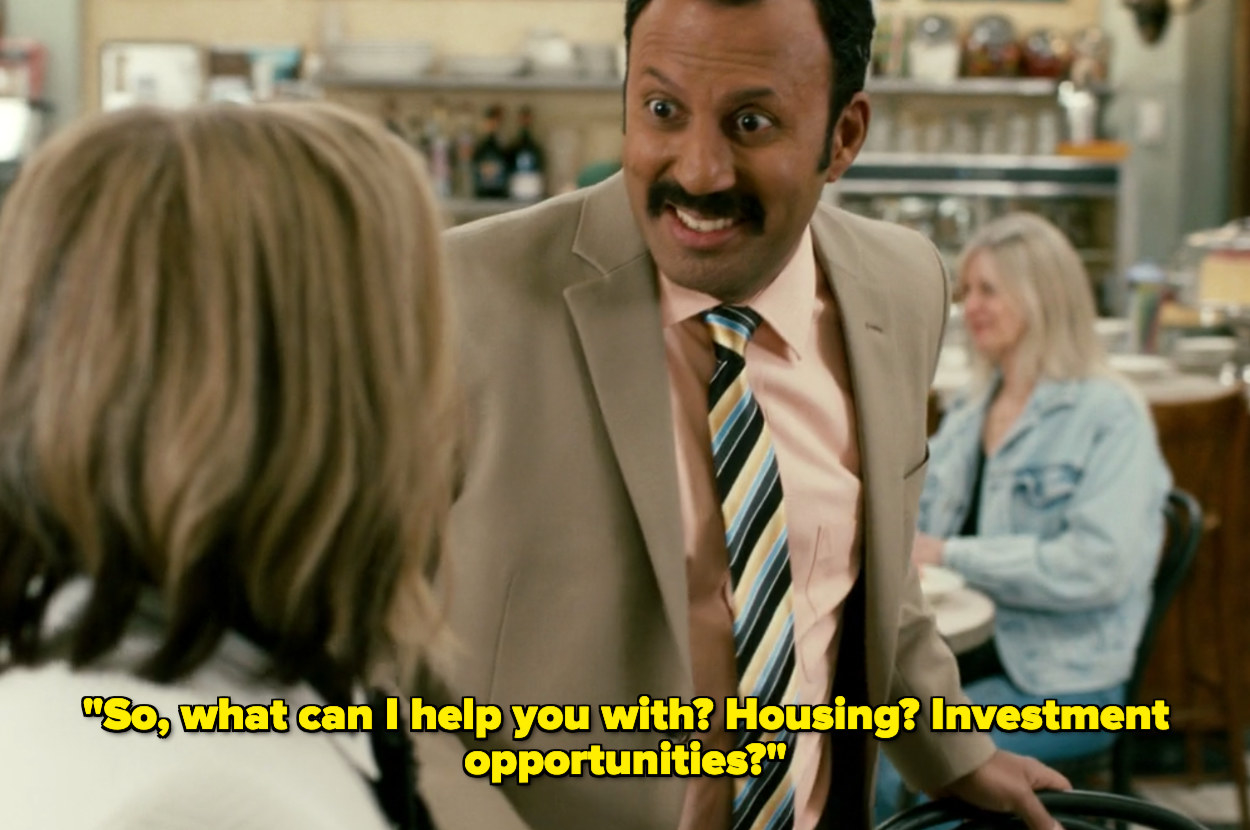
John and Moira couldn’t stand life in Schitt’s Creek. They realized that they might be able to improve their situation by selling the town, collecting the cash, and going somewhere better. So they enlisted Ray, the town’s jack-of-all-trades (but in this episode he’s a financial adviser), to discuss their options.
Financial advisers can take a look at your circumstances and help you weigh your options. They can also walk you through more complicated financial plans (like selling a town you bought as a joke but hate 👀).
4. Always do your research before making an investment.
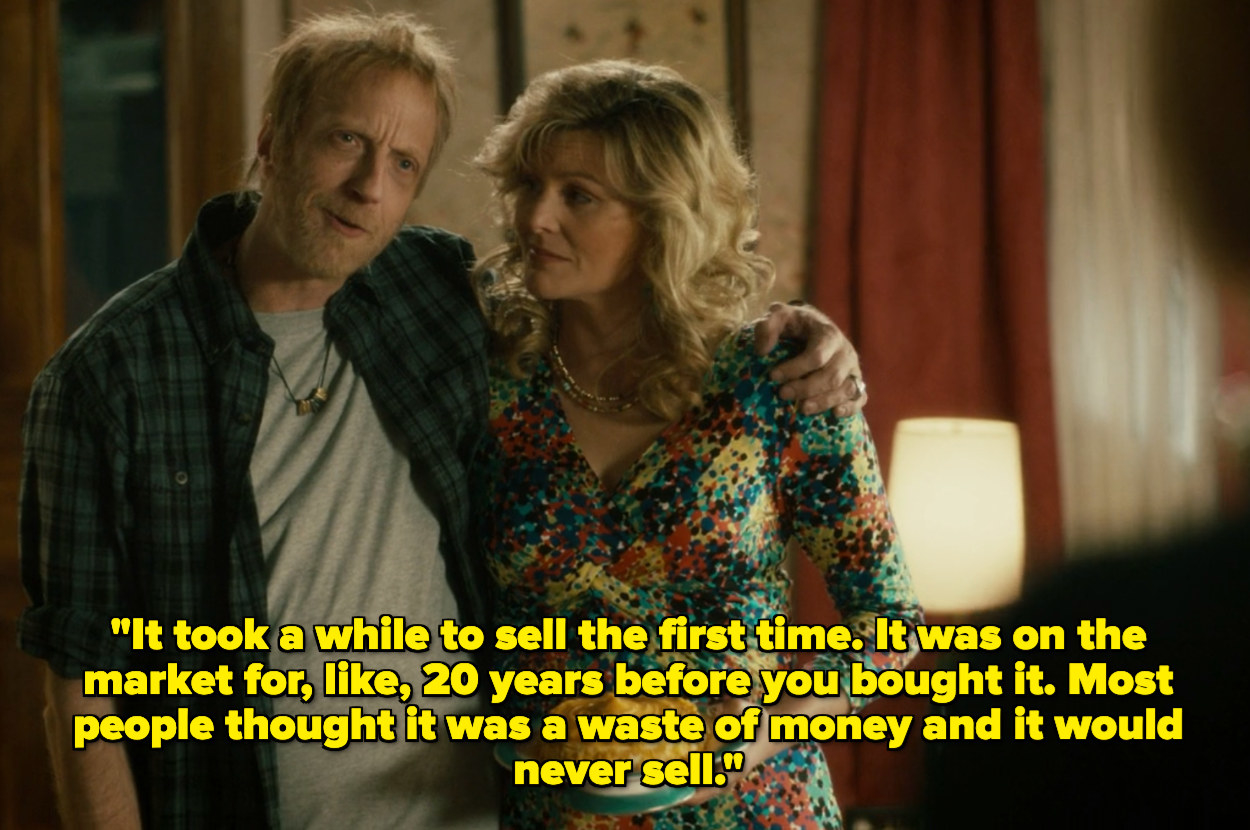
Just when John and Moira thought they’d gotten all the technicalities out of the way and can move forward with the process of selling the town, Roland — the mayor of Schitt’s Creek — just casually rained on their parade. He said that it took 20 years for someone (aka, John) to come along and decide to buy it.
While John said that he had no way of knowing that the town had been on the market for 20 years before buying it, IRL you actually have tools that can give you a rundown of a property’s market history. Zillow, for example, gives you a brief history of when the property was listed and at what price it sold for.
5. Credit cards are NOT free money.
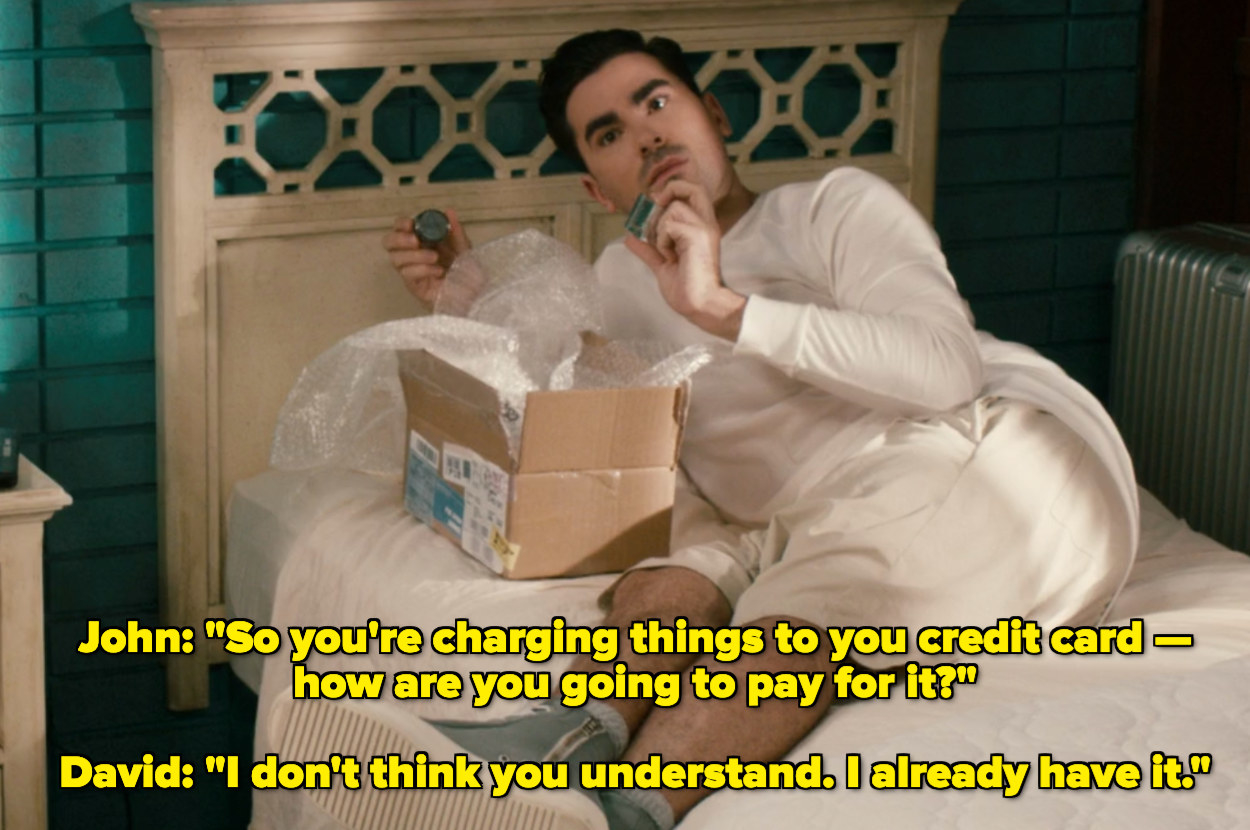
David ordered a set of eye creams from Paris because obviously who doesn’t need high-end Parisian skincare? Given the fact that the family was broke, John was a bit flabbergasted to hear that David was still nonchalantly charging purchases to his credit card. It seemed that David thought that credit cards were a replacement for cash and he could buy whatever he wanted as long as it was charged to a card — but hey, who hasn’t made that mistake at some point, right?
To be clear, when you make a purchase on a credit card, you need to take your *very real* money and pay your *very real* credit card bill — hence, how you pay for an item. There’s usually a minimum required payment but if you can pay off the entire bill each month, that’s even better! Hopefully David at least used a rewards credit card for cash back or travel points or something.
6. Side hustles can be lucrative but they’ll often require *a lot* of work to earn a profit. Also, do research to make sure there’s a market for what you want to sell.
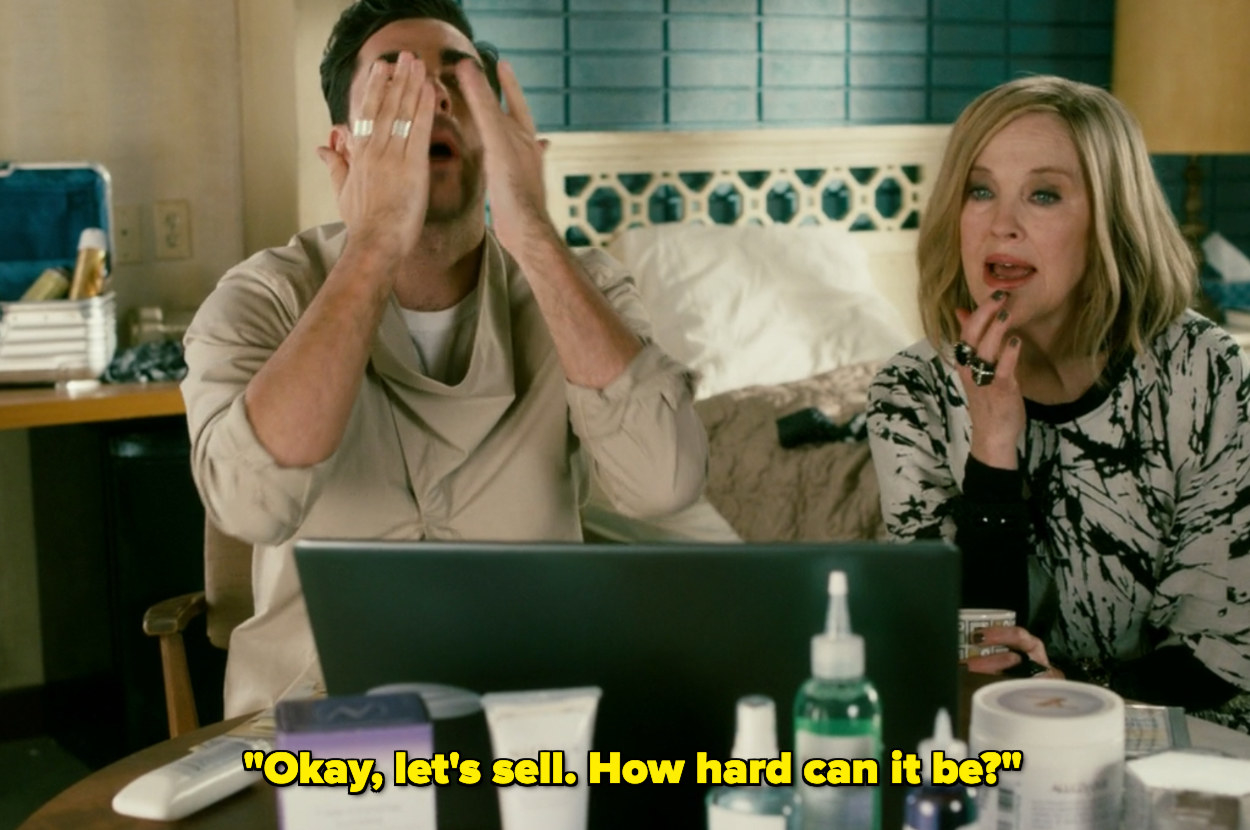
Moira received a package full of skincare products and instructions for getting started as a sales representative for a brand called Allez-Vous. Enchanted by the idea of earning money — and potentially a new car after working her way up — Moira enlisted David’s help in promoting the products to the town. They gathered the town’s women and attempted to make a few sales. Plot twist: The town had already had a rendezvous with Allez-Vous (which, at this point, we can kinda assume is an MLM) a few years prior and they all agreed that it was basically impossible to move up and win the biggest prizes. I say this purely out of love for this dynamic mother-and-son duo: Had they asked around to gauge interest, they might’ve found out that everyone was totally over the products and they could’ve saved themselves a little time and effort.
So while Moira and David never actually got their sales off the ground, the big takeaways here are 1) earning extra cash won’t always be easy and 2) do some market research before diving into selling a product or service.
7. If you’re a business owner, not paying unemployment insurance taxes can disqualify you from receiving unemployment benefits if you eventually need them.
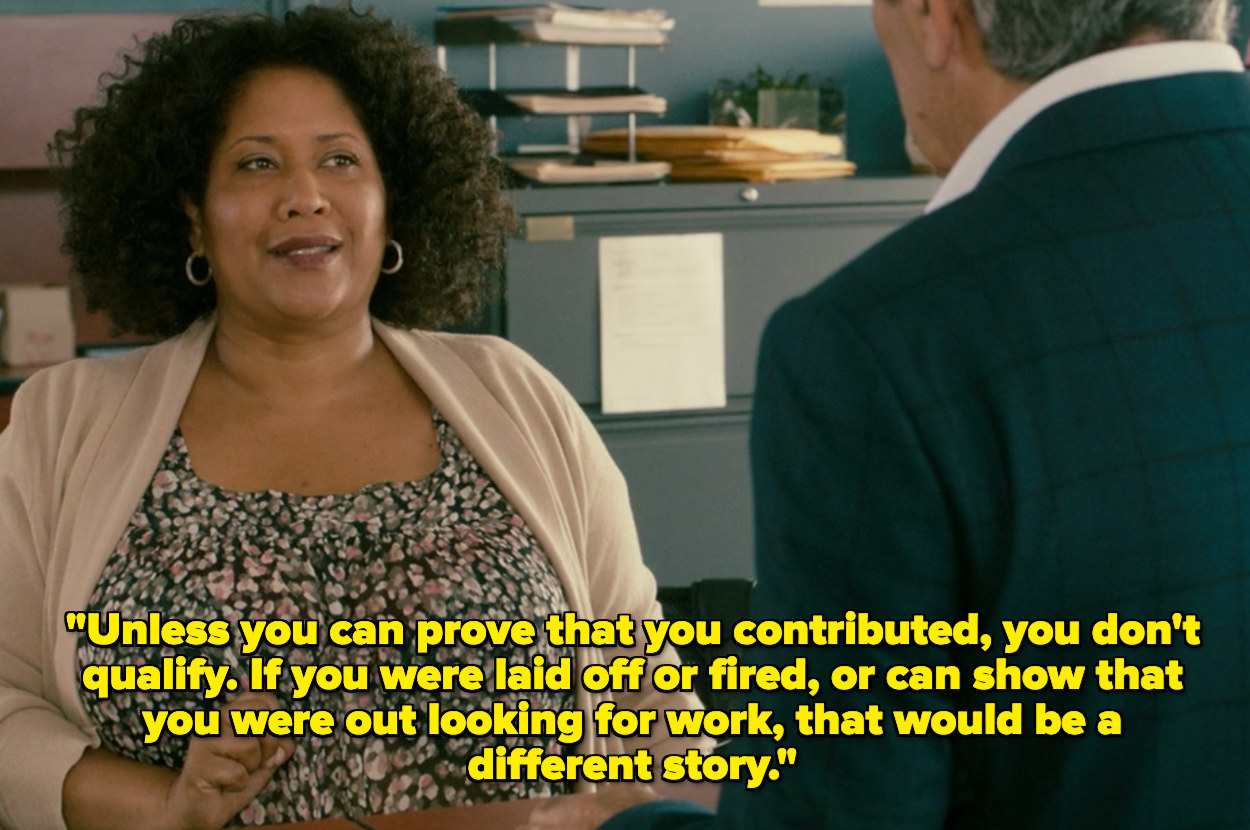
John tried applying for unemployment benefits (since, you know, he no longer runs his business and needs money). But he learned that he should have been contributing to the unemployment program (through what we assume is unemployment insurance taxes). The only way he can receive benefits at this point is if he had been an employee who was laid off. Luckily, Roland swooped in to save the day and said that John was his employee but was let go.
If you’re an employer, you’re required to pay an unemployment insurance tax in addition to other standard taxes. Important to note: Employees are not responsible for paying unemployment insurance taxes.
8. Money can sometimes muddy the waters when it comes to family. Make sure everyone is on the same page when lending and borrowing.
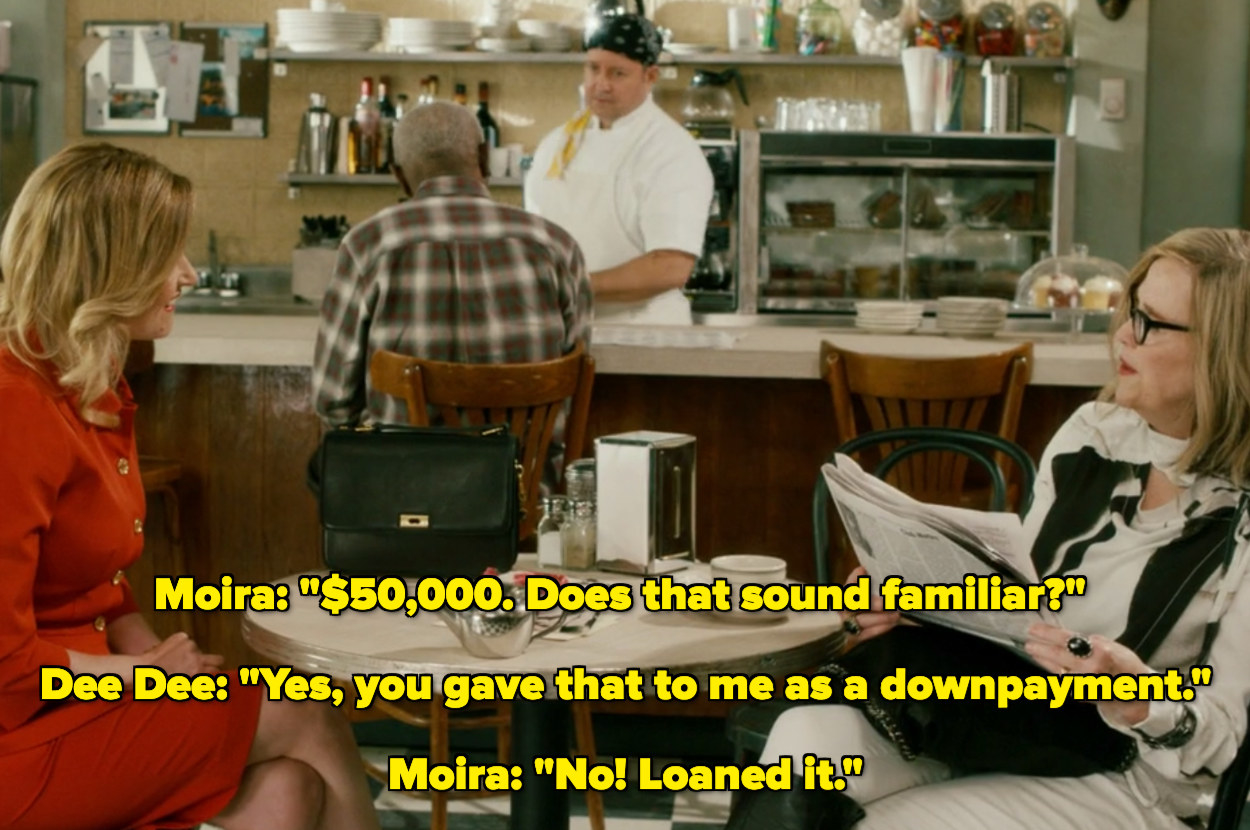
Apparently: 1) Moira had a sister named Dee Dee and 2) Dee Dee borrowed a lot of money from the Roses and never paid them back. This left an obviously bitter taste in everyone’s mouths — especially after seeing Dee Dee again.
Money can be a sore topic for many families for many different reasons. The situation between Moira and her sister is not uncommon. And if you’re in a position to assist a family member financially but you’re worried about the consequences of doing so (i.e., they won’t pay you back or they’ll take advantage of your generosity), clearly communicating your feelings and expectations from the very beginning might help.
9. Some items can work as investment pieces that can be sold when you need extra cash.
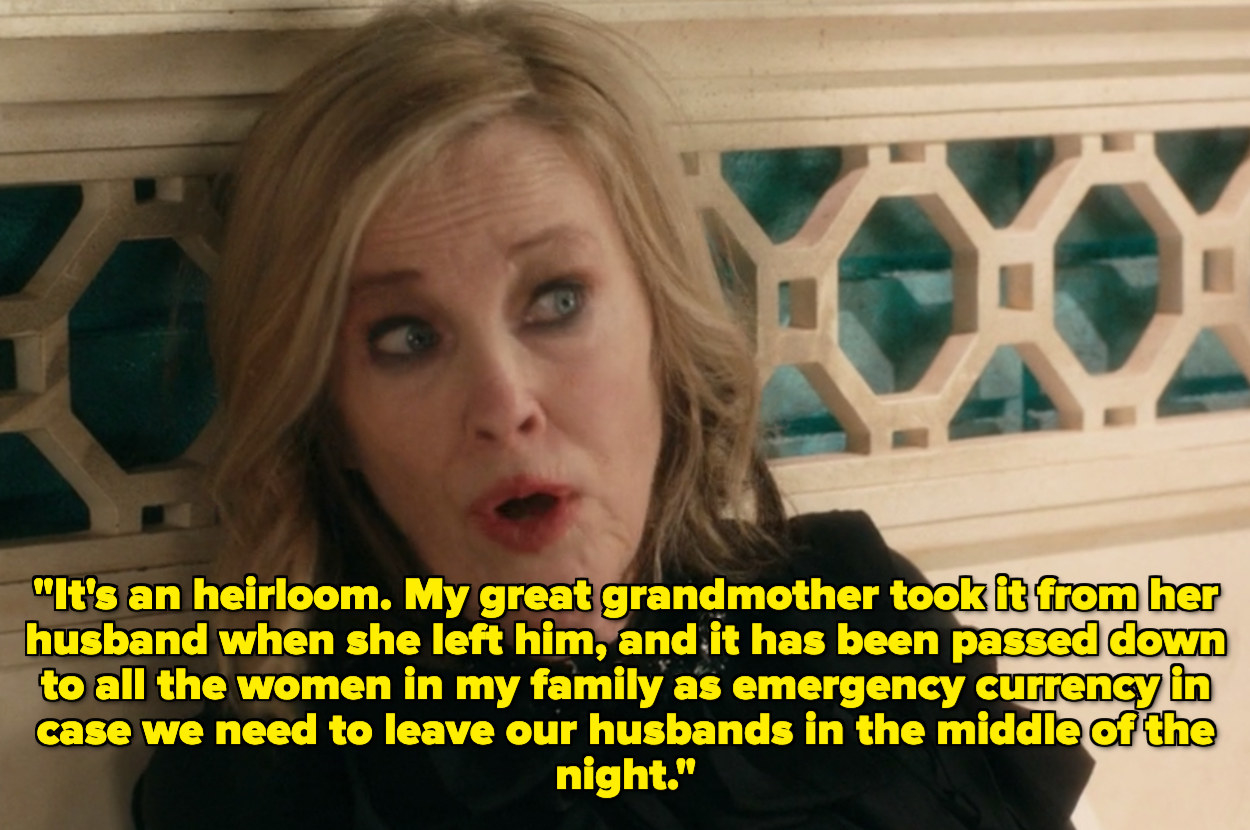
In one episode, David ran away and presumably took Moira’s heirloom handbag. Never fear: Both David and the bag were found and reunited with the family.
But Moira made an interesting point: She explained that the handbag was meant to serve as emergency currency for women in the family who needed it. In other words, the expensive bag could be sold or pawned for extra money. Designer handbags are just one example of investment pieces that can really ~pay off~. One BuzzFeed reader also suggested owning high-end pieces of jewelry, which can also be resold for a good chunk of extra cash when needed.
10. Great discounts can be lurking anywhere; you just have to look for them.
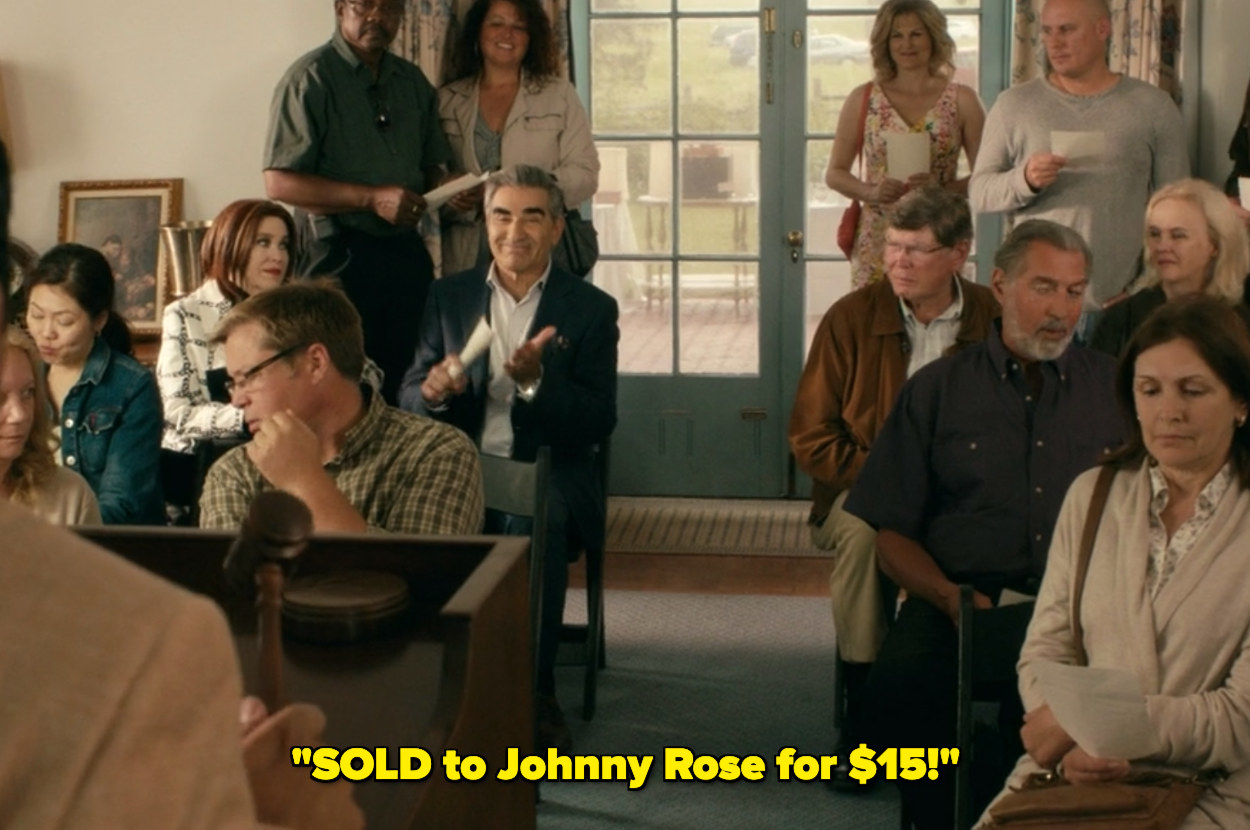
John and Moira went to an estate sale where items were being auctioned off. John scored a pair of cuff links at quite the bargain: $15. While there was no mention of the original value of the cuff links, we can only assume they were pricey since John was interested in them. The scene was a testament to the fact that there are so many ways to get a discount on great items: discount codes, seasonal sales, clearance sections, employee perks, and more.
11. A tax write-off does NOT mean free money for spending on your business.
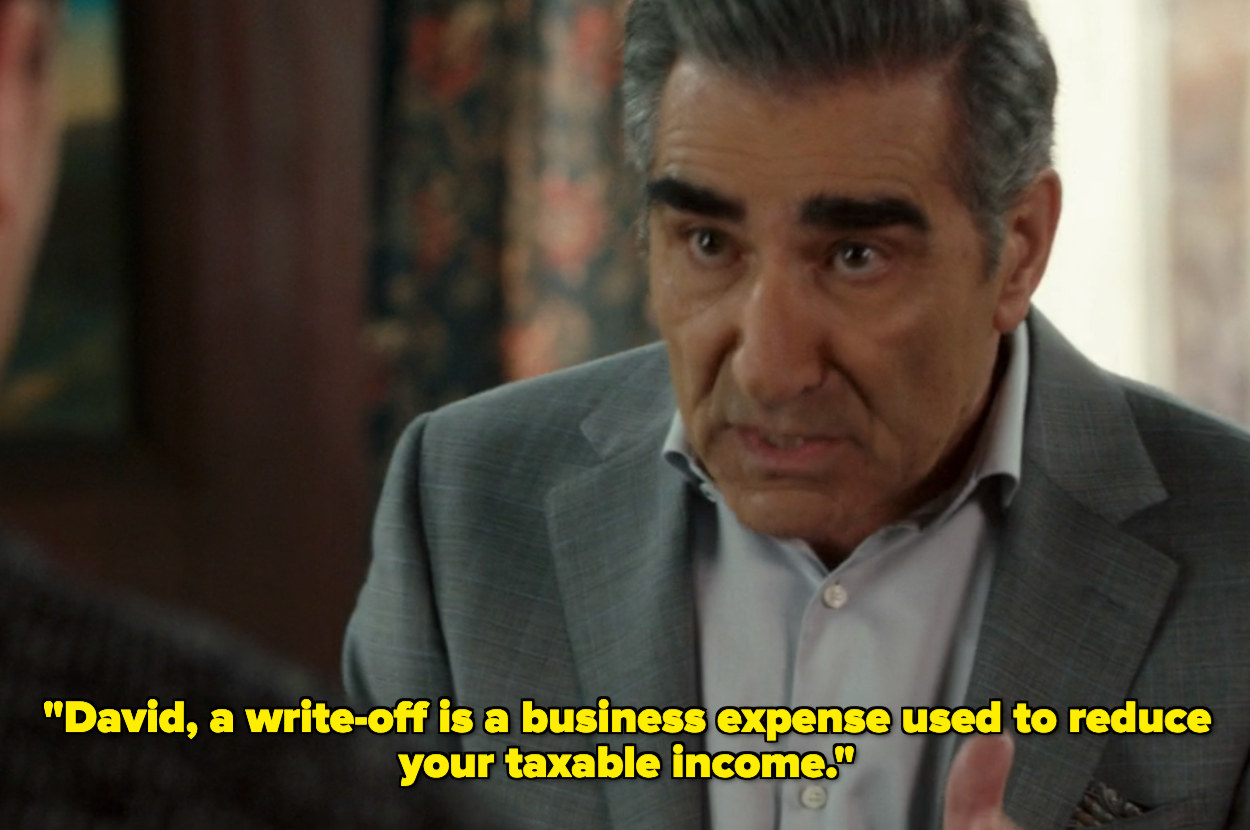
David started a job at the Blouse Barn and began using it as a way to get free items that he can sample (and potentially sell in the store). He figured he could just write them off come tax time…except he wasn’t totally clear on this whole process. He thought he could just get the items and not have to pay a dime for them (b/c write-offs, duh).
A write-off is an expense used for your business that would actually lower your business’s income. So let’s say you start a baking business and you made $20,000 in sales but spent $3,000 on equipment to get started in the first place. Claiming a write-off for the $3,000 actually brings your business income down to $17,000 (which might put you in a lower tax bracket). Bottom line: No, a write-off does not mean that you get free items for your business but it can help you save on taxes when filing.
12. Make sure you reaaally need it before you buy it.
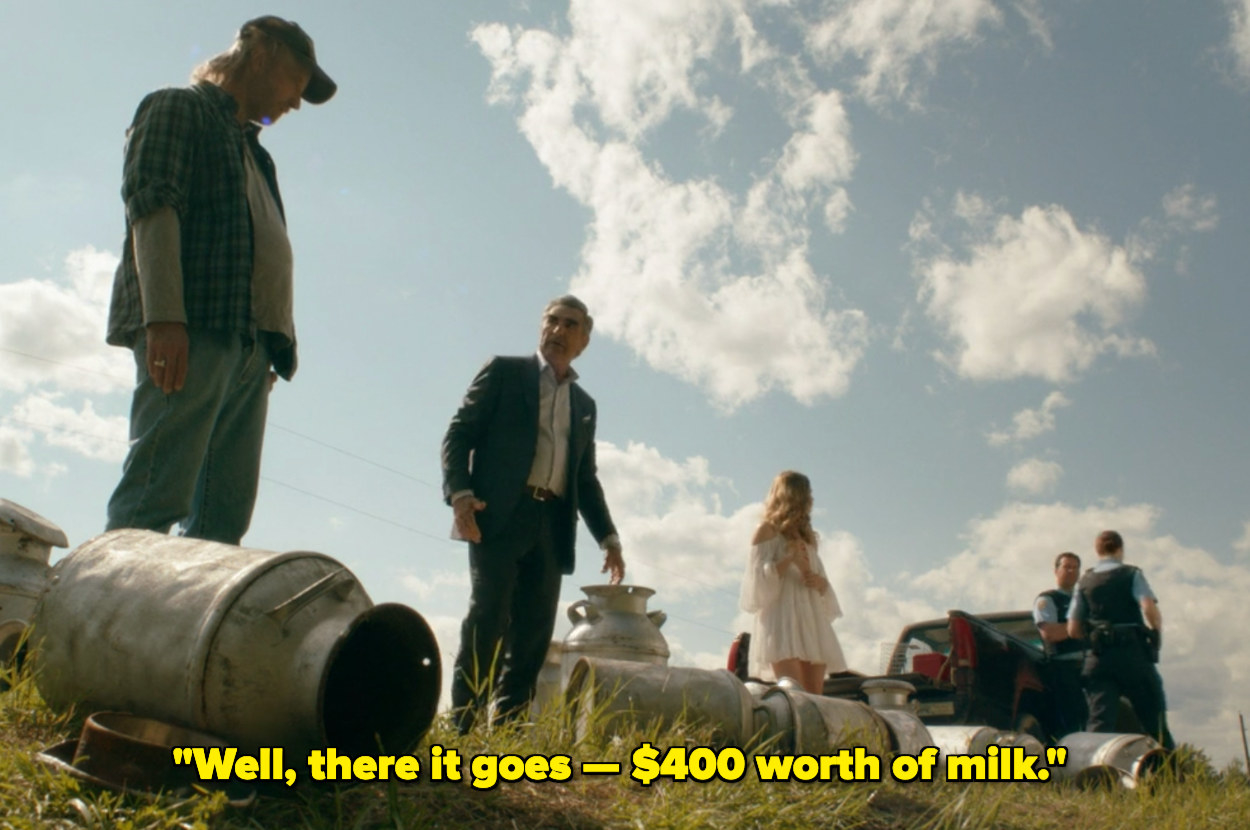
A little birdie (okay, Twyla) told John that raw milk can be sold for quite a bit more than pasteurized dairy — and that it was illegal to sell raw milk. John immediately saw it as an opportunity to make some extra money. He kicked around the idea of Alexis getting him a few pints of raw milk, buuuut things went south when Alexis misunderstood and bought 12 huge jugs of raw milk, which ended up costing $400. It was waaay more than John had bargained (or even budgeted) for. In the end, they were stopped by the police while transporting the milk and ended up having to dump it all.
A little more careful planning might’ve helped John avoid this scenario; it wouldn’t have made for great TV but at least he wouldn’t have been out $400. You know that rule of thumb where you wait 24 hours to see if you reaaally want to buy the item you saw? Sometimes you realize you only liked the idea of having the item.
13. Don’t let any money-saving company benefits go to waste.
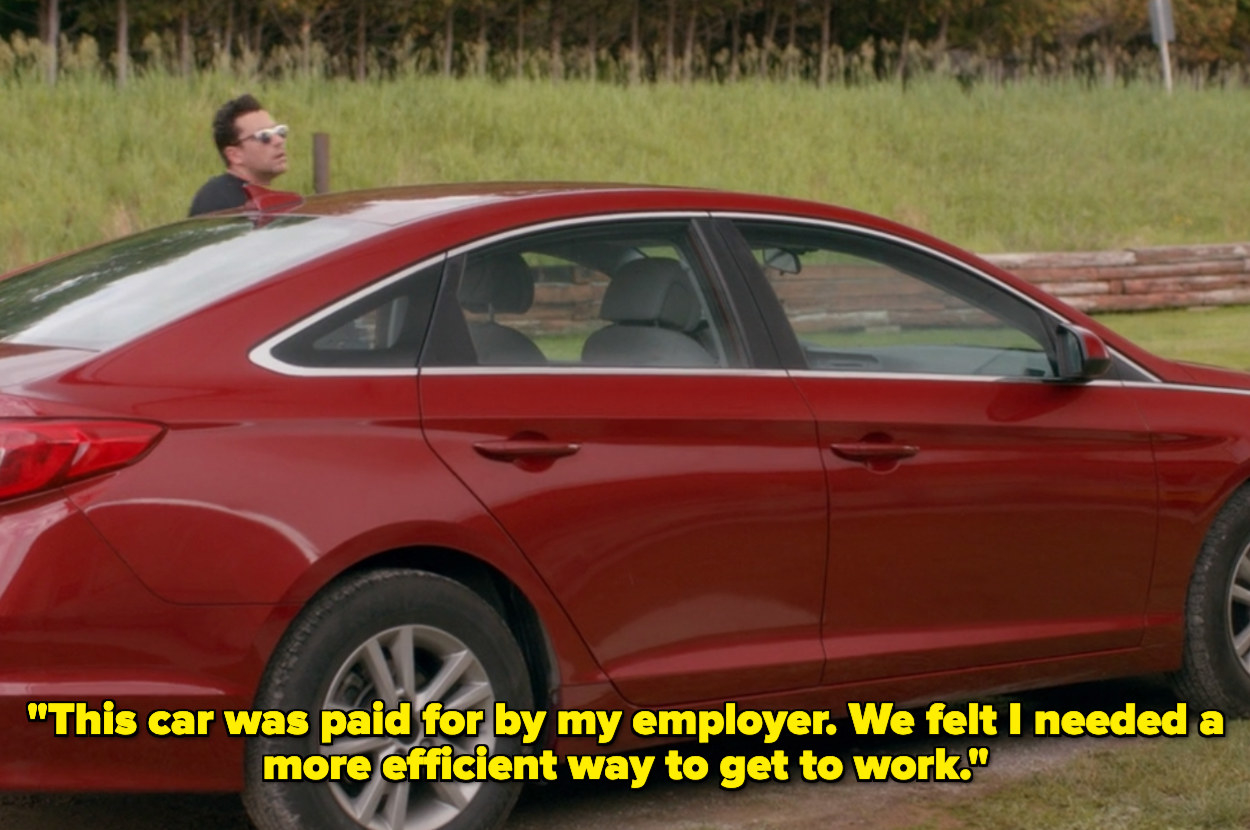
David’s boss at the Blouse Barn rented him a car to get to and from work. In other words, he got a car without spending a dime of his own money. If you work for an employer, they may not rent you an actual car but they might have some other perks that you can use. It could be your ticket to getting a gym membership at a discounted rate or having free access to otherwise expensive online courses.
14. Stash some cash into an emergency fund for a rainy day — even if you only put aside a little at a time.
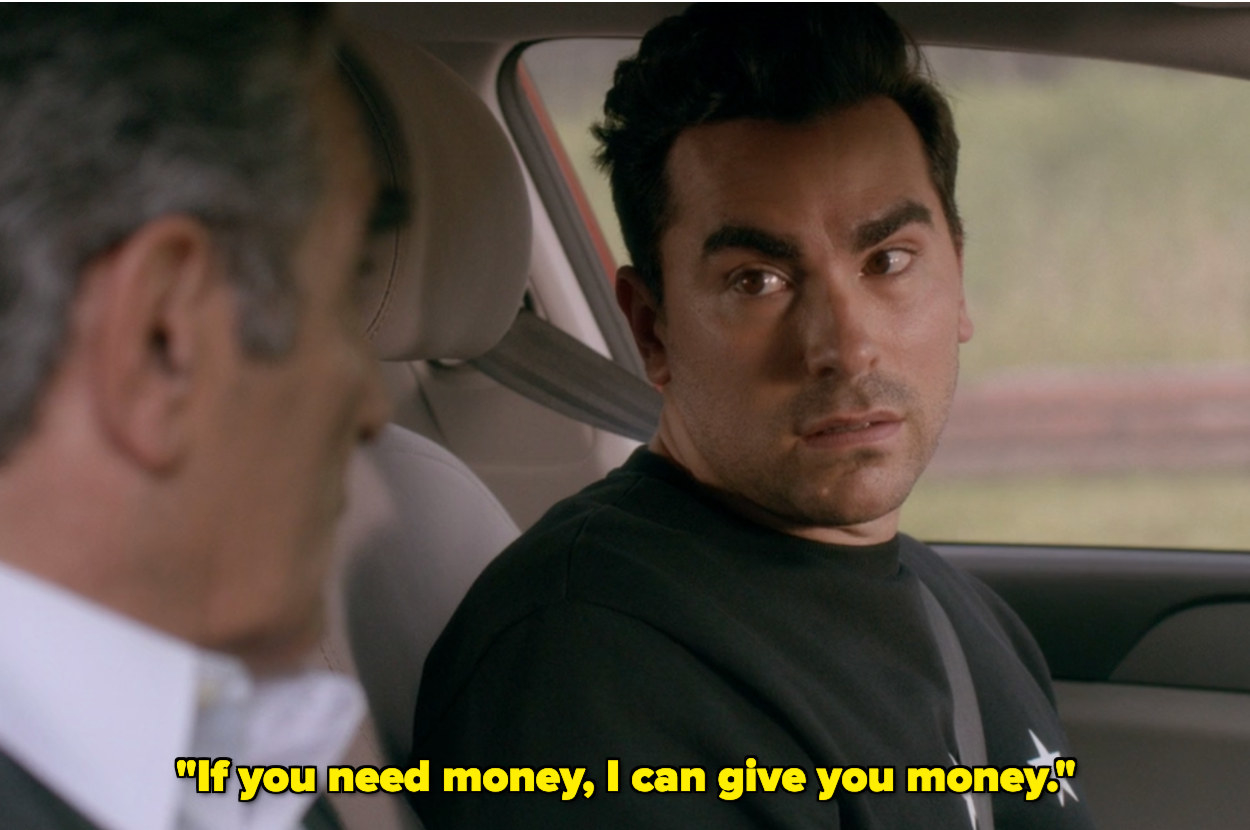
After the whole raw milk fiasco, John finds himself in need of some money. Luckily, David had been saving the money he got from his job at the Blouse Barn and was able to lend a helping hand.
You never know when you might need some extra cash, but building up a rainy day fund can help you offset some surprises. Contributing just $50 a month is better than nothing and it can make a big difference.
15. Keep your account information in a safe place for when you really need it. Also, follow all account setup instructions to a T.
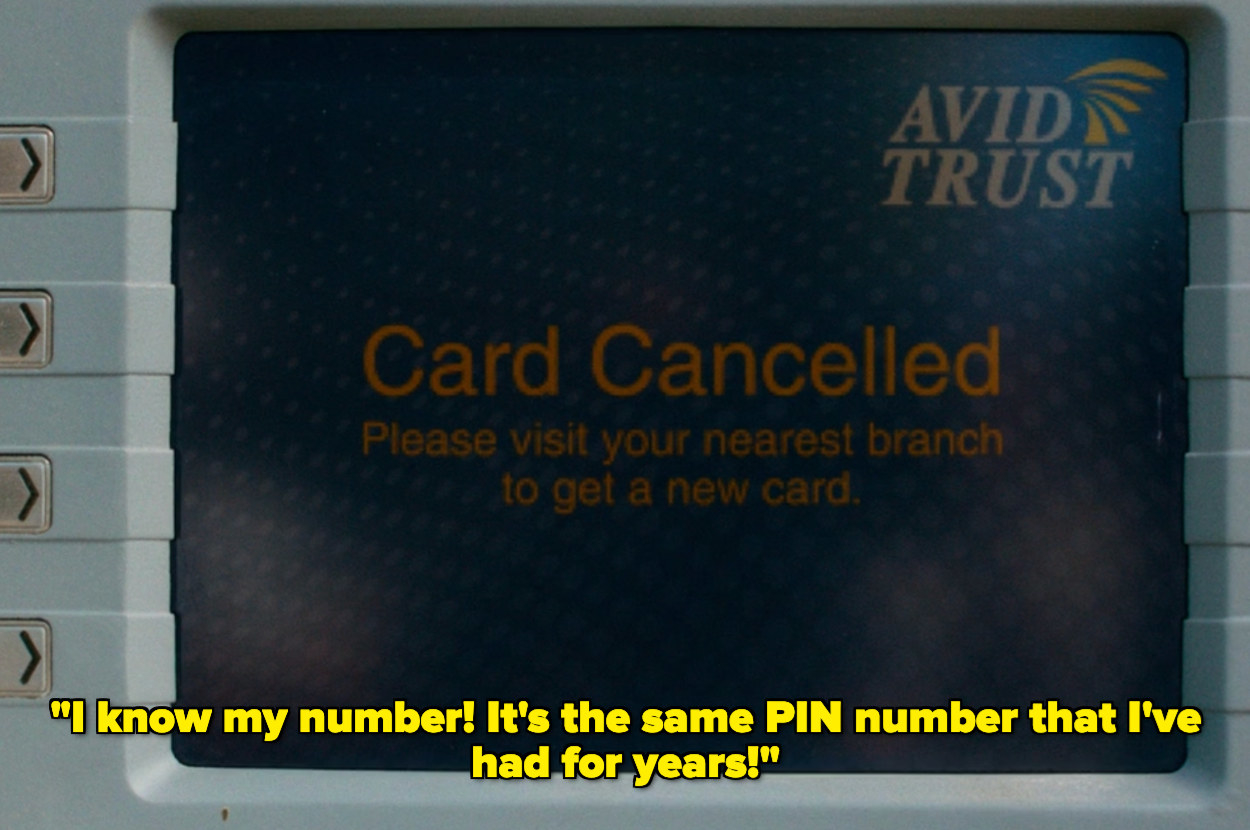
Sooo David went to withdraw the cash for his dad but his PIN wasn’t working and his card got canceled (it’s just one thing after another for the Roses). A representative at the bank explained that they sent out PIN instructions but David never followed the instructions to correctly set it up. It’s a very important reminder that reading all the instructions for setting up any type of account (and keeping your credentials in a safe place for your reference) can help ease some tension in a stressful situation.
16. Budgets can be more important than you might think.
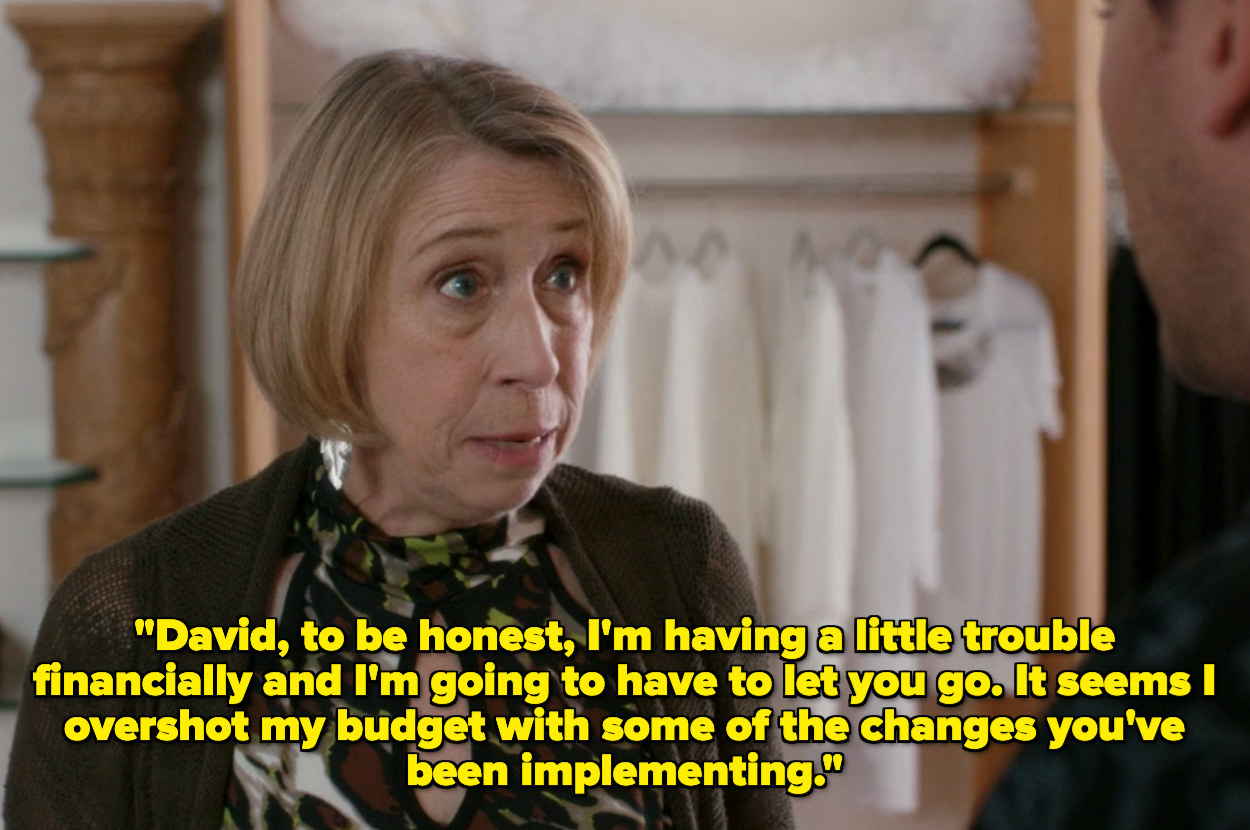
David tried upgrading the merchandise and overall ~aesthetic~ of the Blouse Barn. And while his tastes resulted in some small sales, the merchandise basically crippled his boss Wendy’s budget.
Understanding how much you can afford to spend is really important when it comes to your financial health. A budget can warn you when you’re on the verge of overspending and it can also highlight areas where you can actually afford to spend more.
17. Don’t be afraid to negotiate for more whenever you can.
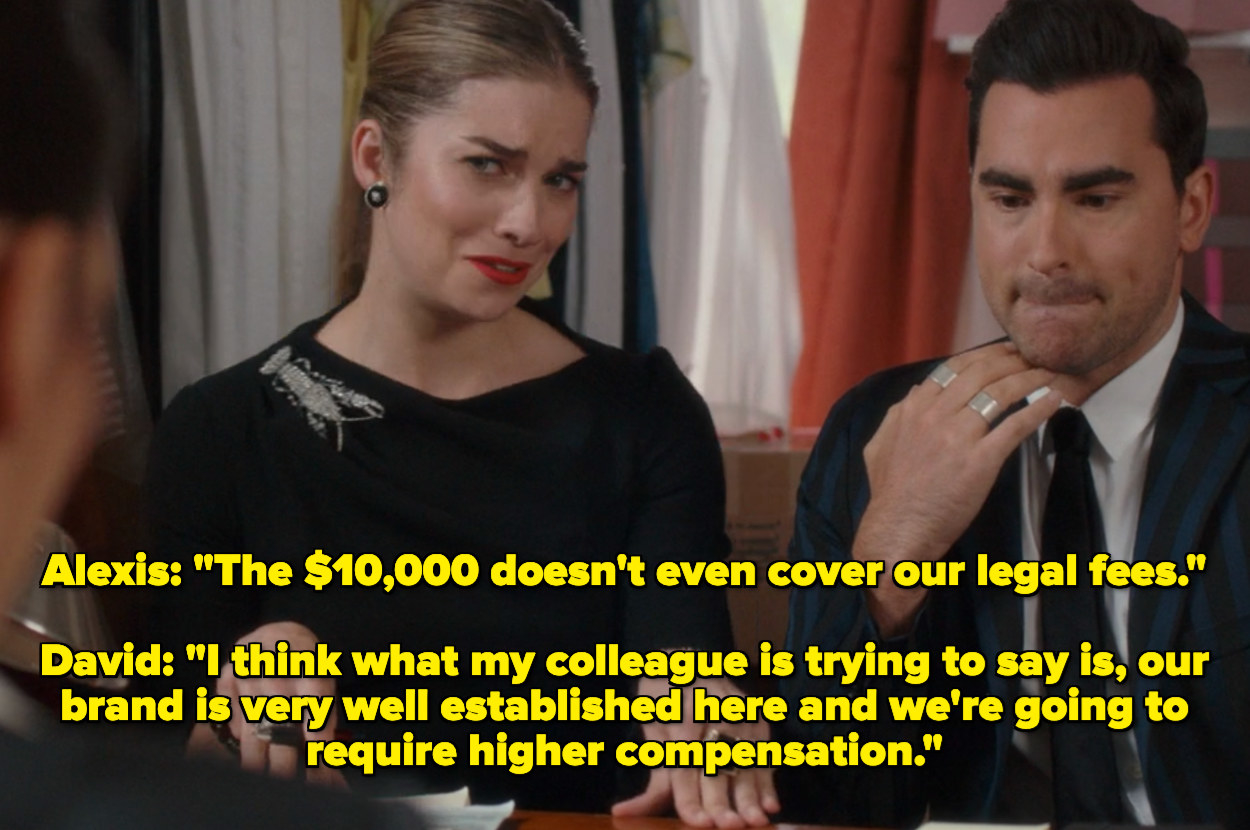
Blouse Barn Australia — totally unaffiliated with the Blouse Barn that Wendy runs — planned to expand the brand into the States. Except, Wendy’s shop of the same name stood in their way. They tried to pay her $10K to change the name and she was willing to accept the offer…until David stepped in. He believed they were totally lowballing her. He and Alexis negotiated for more money on Wendy’s behalf — and they got it! It’s unclear how much money they were able to secure but it was enough that Wendy was able to cut David a huge chunk of the money.
Moral of the story: It never hurts to negotiate. Whether it’s for your salary, rent, or a lower rate on your bill, asking might get you further than you think.
18. Save up extra money, like bonuses and tax refunds, that comes your way to give yourself some financial cushion.
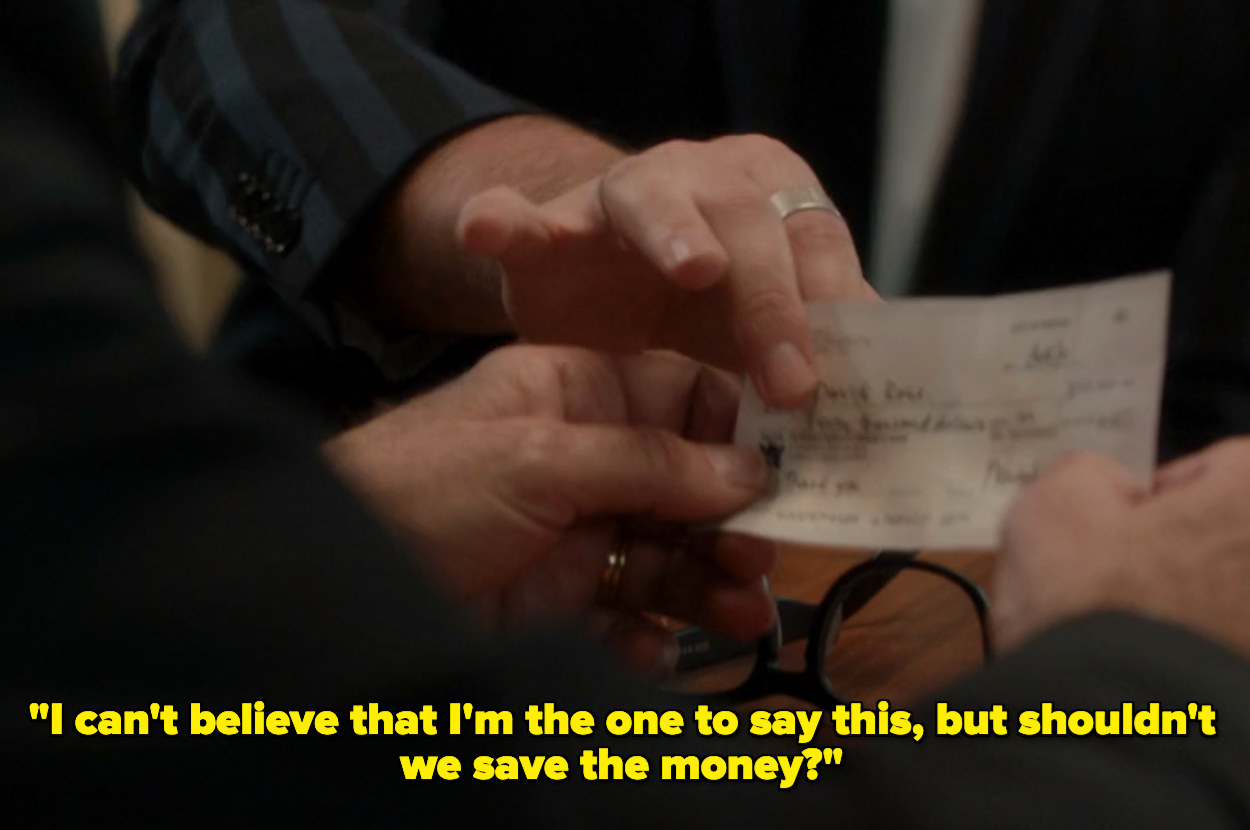
David begrudgingly suggested saving the money Wendy gave him — much to the disappointment of Alexis, who wanted the family to treat themselves with a vacation.
While it’s nice to give yourself a little treat here and there, don’t underestimate the importance of saving part of your money as soon as you get it (aka, paying yourself first). When you save the money and don’t see it, you aren’t tempted to spend it. That way you have some savings to rely on in case surprise bills pop up.
19. You don’t need to buy the fanciest or newest car model. Also, walk in already knowing what your car budget is.
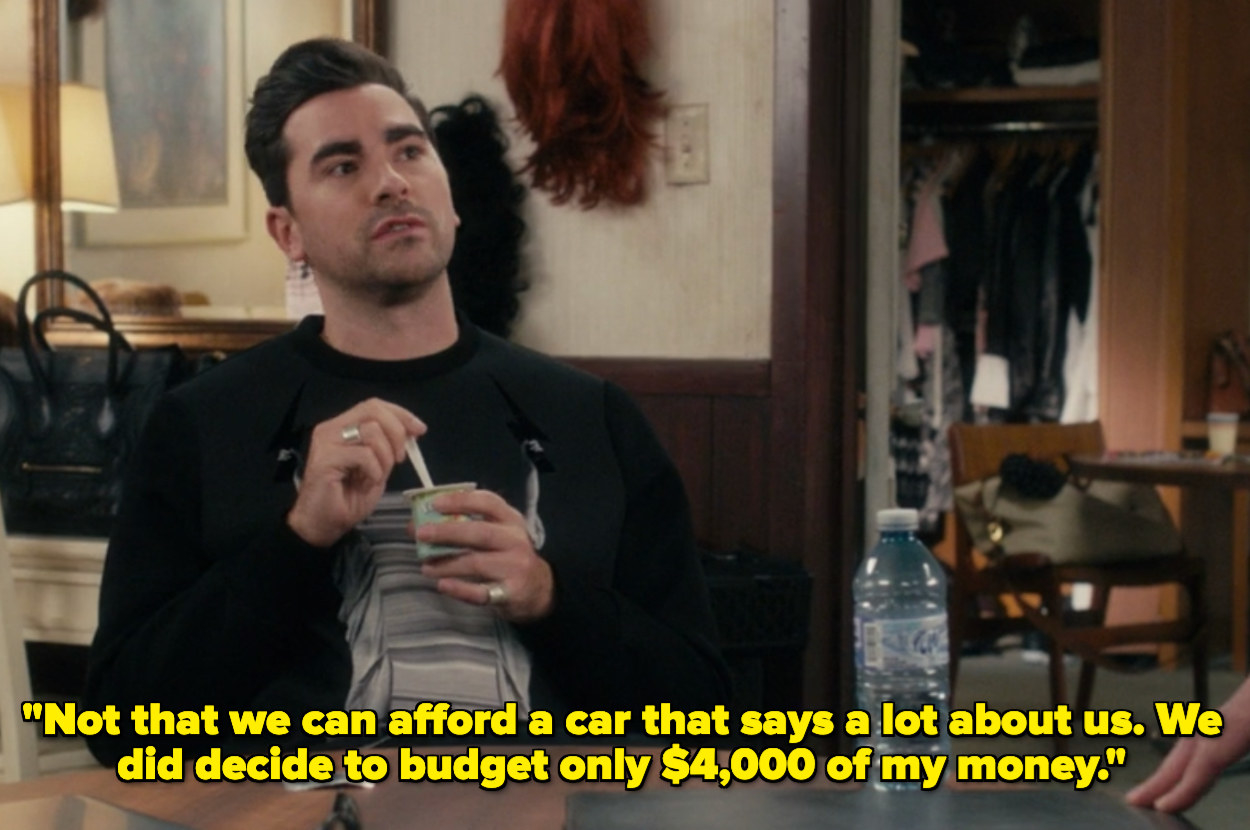
The Rose family decided it was time to get a car. They very smartly agreed to a budget of $4,000; though, Moira wanted something that clearly would have put them over budget.
Buying the newest car model will be costly. In fact, new cars depreciate in value the minute you drive them out of the lot. You’re usually better off getting a used or older model that’ll cost you less. Besides, the most important thing is that you ~safely~ get from point A to point B.
20. Save for any major upcoming expenses you’ll have.
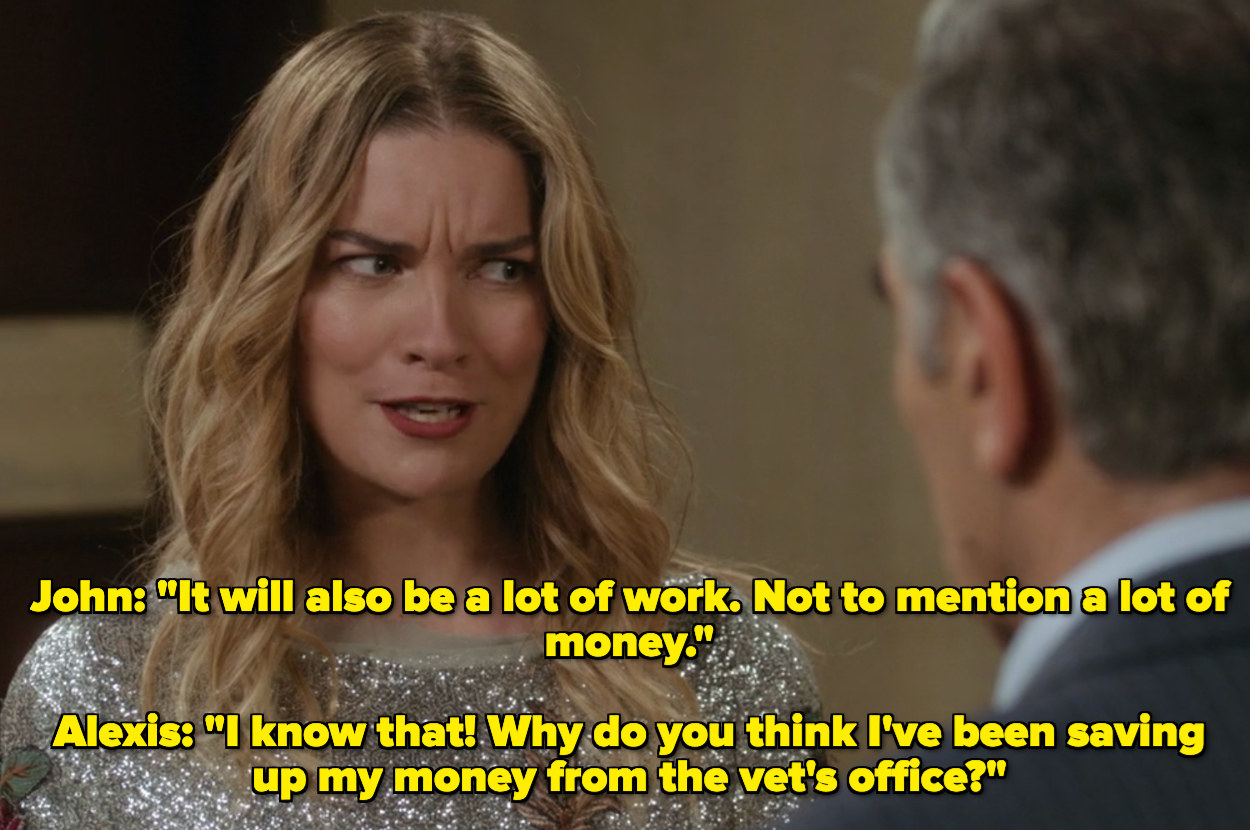
Alexis decided her next major step would be to get her degree from the local college. She and John had a bit of a…mix-up (she thought he found out she was planning to take college classes) but she mentioned that she had been saving her money to pay for the classes because she knew they’d be expensive. And honestly, that’s not a bad idea at all.
If you have a big expense coming up within the year — like college tuition, a big trip you’re planning, etc. — start saving ahead of time to cover all or part of the cost. It can help you avoid going into debt. And in the case of college tuition, saving can help you take out fewer loans than you would’ve otherwise needed.
21. And also save for any splurges you’ve been eyeing.
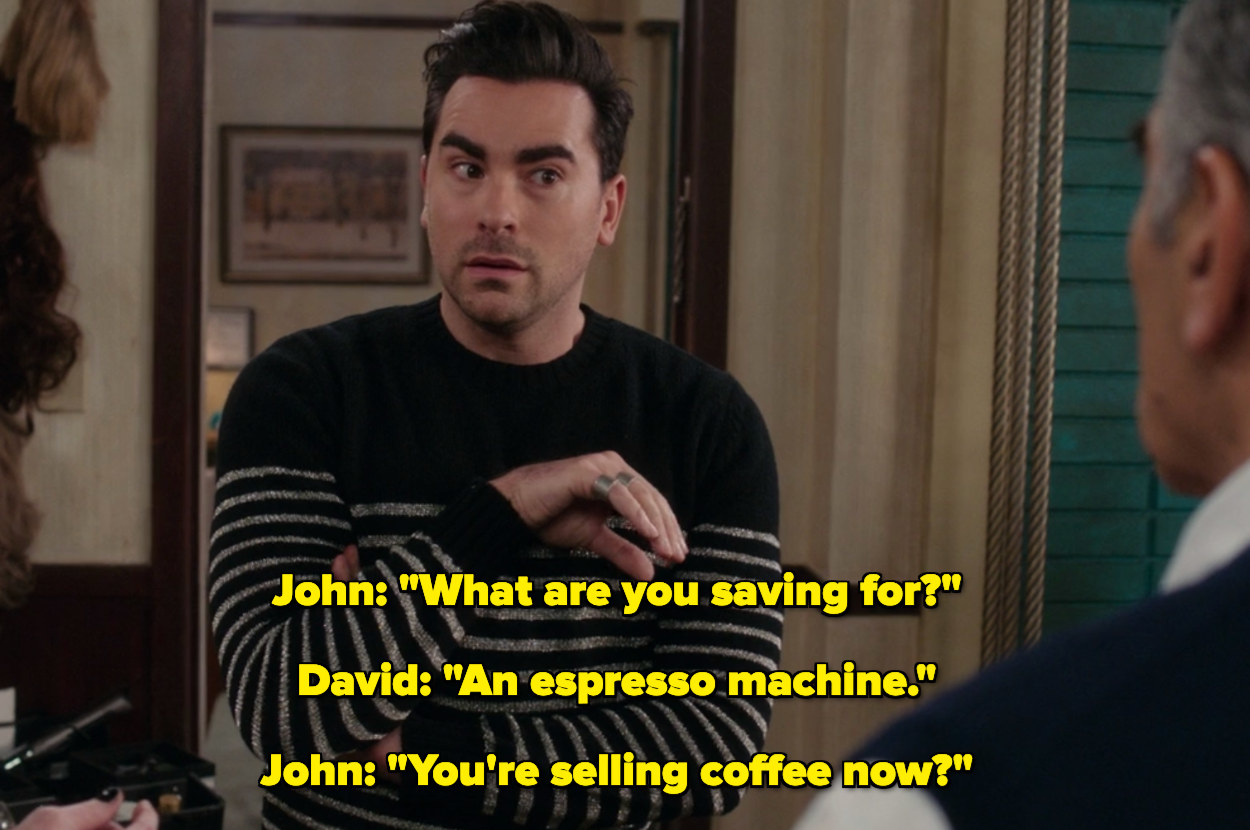
And when it comes to something super splurge-worthy you really want, saving up for it can also help you pay for the item. Here, David wanted an espresso machine for the staff room at his store. Instead of just flinging money out the door and paying whatever the cost would be, he decided to strategically save up for it.
22. Treat yourself. You deserve it! But try not to get too carried away when you still have other expenses.
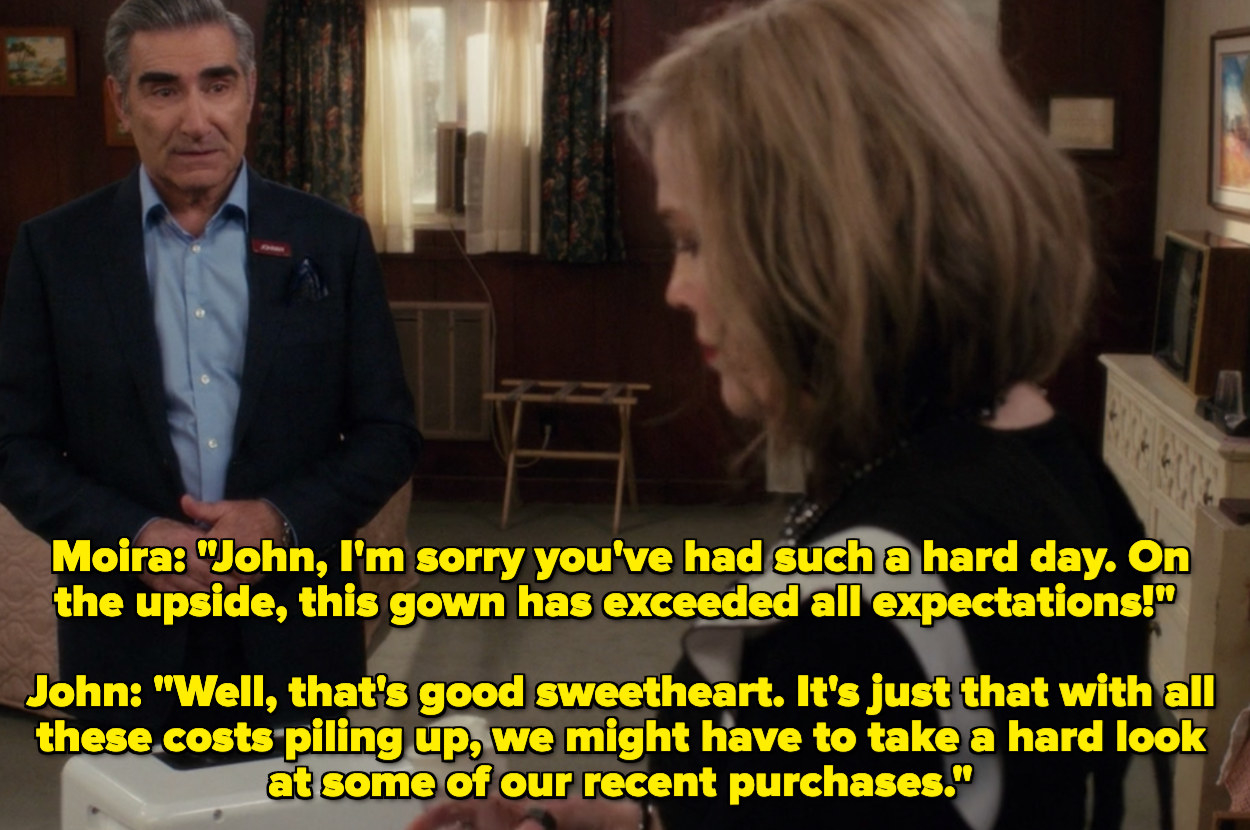
Moira purchased a gown for her upcoming movie premiere. She also went a little spend-happy on a few other purchases. At the same time, John was also feeling the sting of his wallet when he realized how costly some motel renovations would be. He had to remind Moira that it might be time for them to slow down on the purchases.
We’ve all probably experienced revenge spending: It’s where you diligently refuse to spend on nonnecessities for a period of time and then, BOOM, just like that you find yourself paying for whatever you want left and right. It’s easy to justify revenge spending because you say, “Well, I barely bought anything in the last few months so I deserve this!” And you’re totally right; you do deserve that thing you really want! But it’s important to be careful because your spending could get a little out of hand. Make a list of items you’ve been thinking a lot about purchasing. Then, when you feel like it’s time to treat yourself, pick an item or two from your list. Knowing exactly what you’ve been wanting can help you avoid the temptation of spending on just anything that looks appealing.
23. When shopping around for a new home, apartment, or event venue, always know your budget and research pricing ahead of time.
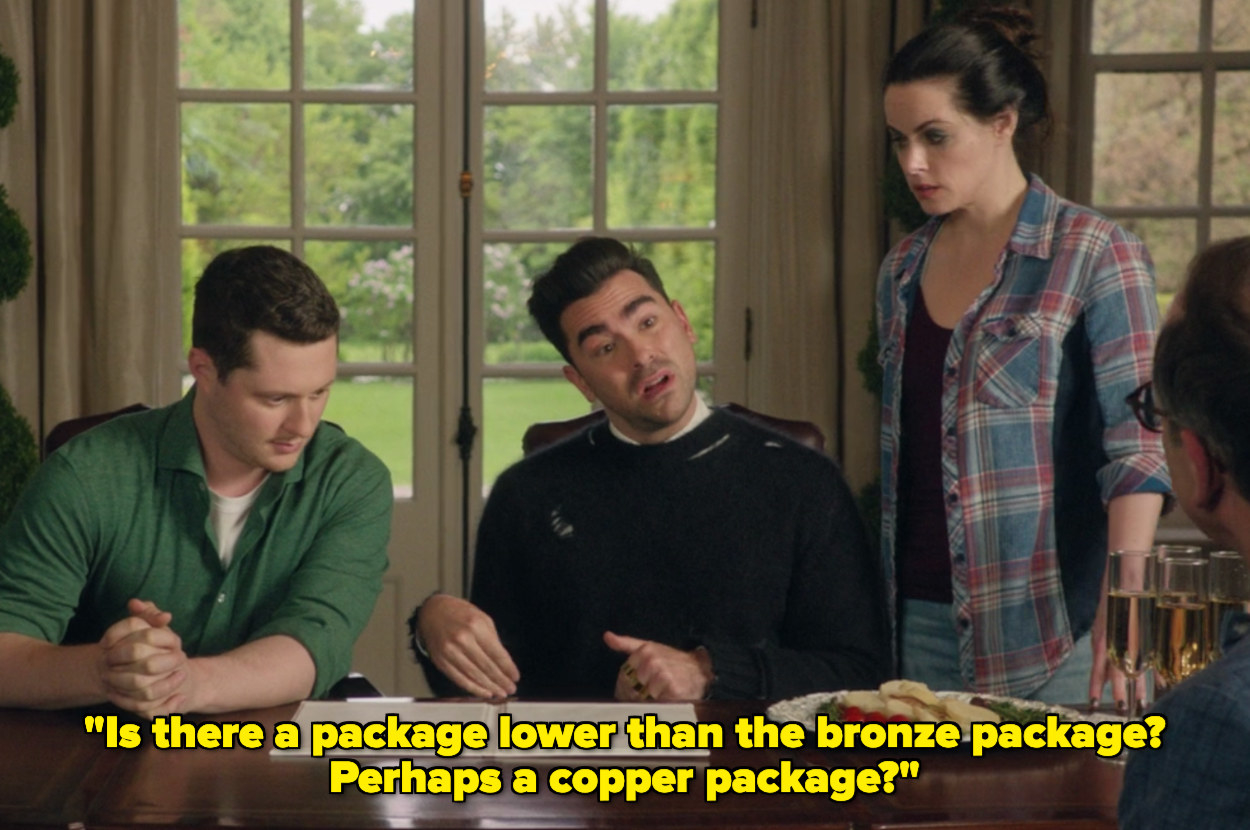
David and Patrick went looking for a wedding venue when David fell in love with the first place he saw. Unfortunately, the cost was waaay over their budget.
In David’s case, the venue didn’t offer pricing ahead of time but in general, it’s a good idea to know the price of your venue — or potential new home — in advance. This way, you already know if it’s within your budget. Never look at a home or venue that’s way more than you can afford; you might fall in love with it and after that, nothing else you look at will compare.
24. Money can’t buy happiness.
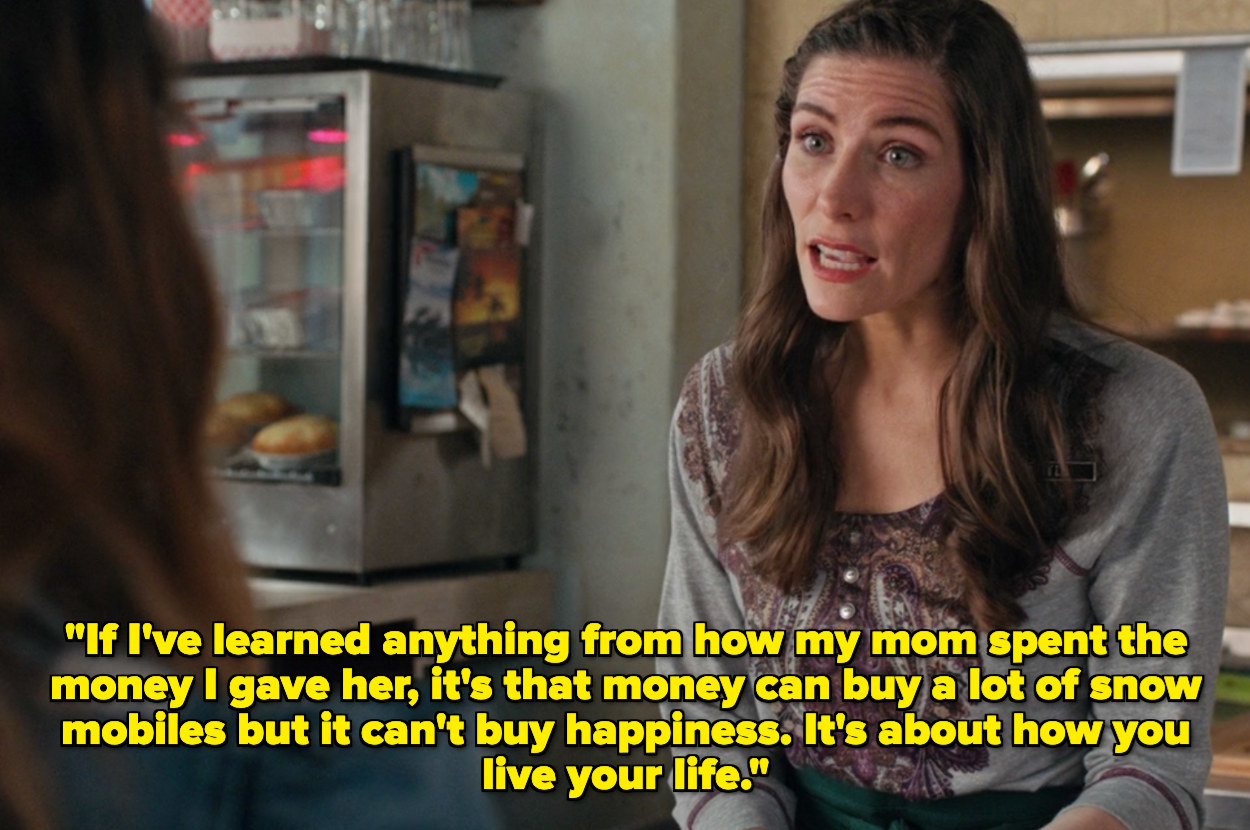
Toward the end, Twyla told Alexis that she had won the lottery just before the Roses arrived. It’s a huge shock to Alexis that Twyla is basically the millionaire next door since she works at the café, like, all the time. Alexis asked why she never really spent the money and Twyla said that she believes happiness actually comes from how you live your life.
First off, wow. Love that for Twyla. Second, her statement totally rings true. While money can certainly afford you more of what you need, real happiness comes from experiencing the things you love every day. For Twyla, that meant running the cafe and being around customers all the time. You just gotta choose your happiness.
25. Lastly, make your money work for you.
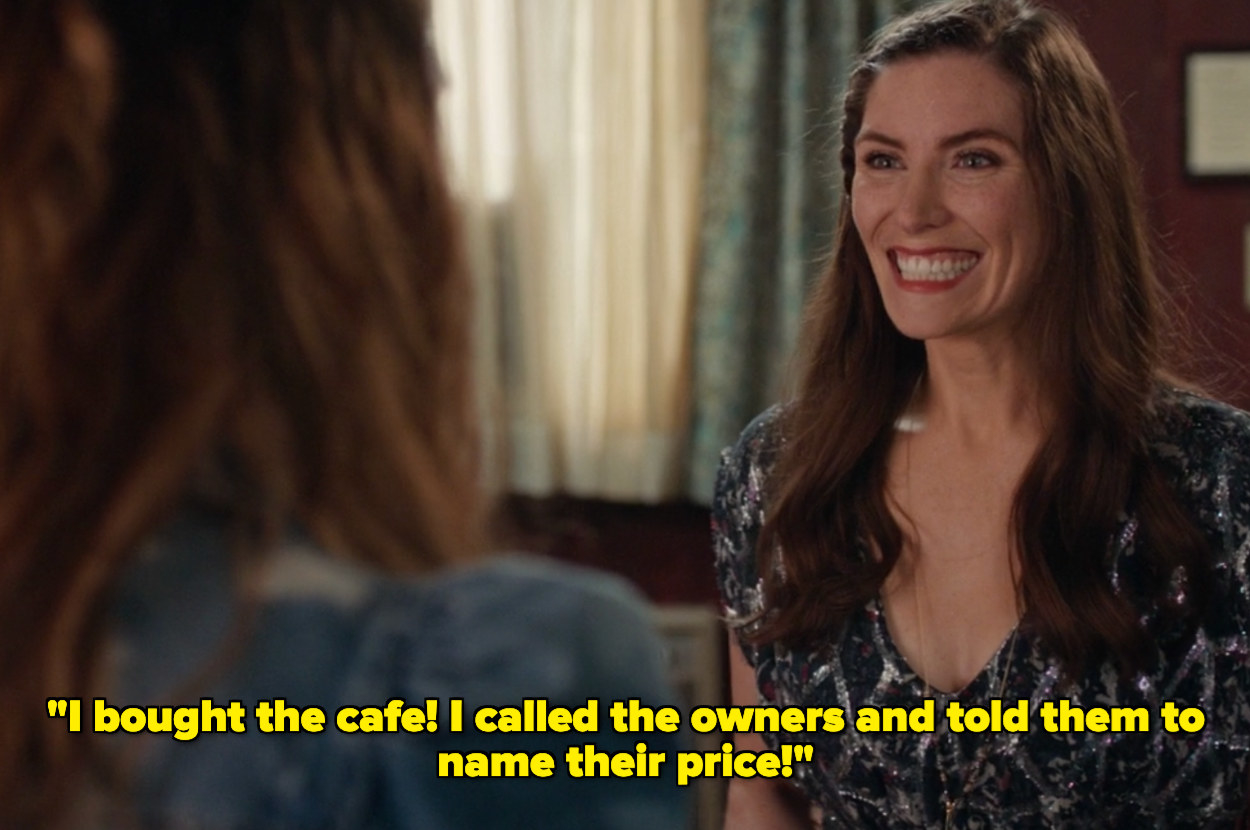
After Alexis mentioned that it’s okay for Twyla to use her ~millions of dollars~ to buy something she loves, Twyla took her advice to heart. She loved the café so much, so she bought it!
Not only is this a major power move for Twy, but it’s also a meaningful investment that’ll continue making her money. We can assume that Twyla will keep improving the cafe, which means she’ll keep getting more customers who will keep spending money. We have no choice but to stan.
What other TV shows are full of hidden money lessons?
And if this sounds like music to your ears (and bank account), check out more of our personal finance posts.
